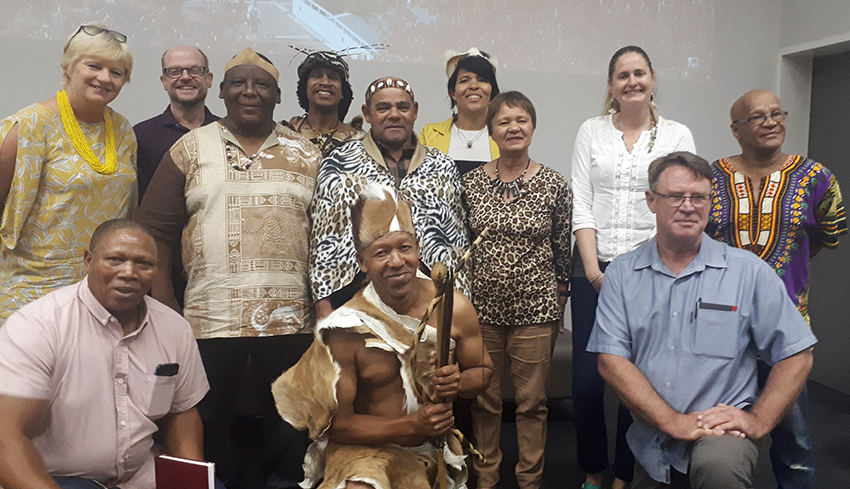
News
Khoi and San communities to revive language through Afri-Kwê Project
The Afri-Kwê Language Project, supported by the Department of Cultural Affairs and Sport (DCAS), was launched by representatives of the Khoi and San communities on Saturday 23 March 2019.
The project is a collaboration between the !AL-OM Aboriginal Customary Council, Afrikaanse Taalraad and Department of Afrikaans and Dutch at the University of Stellenbosch; and aims to prevent the KhoeKhoegowab language from dying out.
Helga Fraser, Assistant Director for Language Services at the DCAS, delivered a message of congratulations at the launch at the university.
“The Western Cape Government and DCAS, through its Language Services Unit in particular, is mandated to promote multilingualism and to create awareness about the promotion and development of previously marginalised languages. The Department is guided in this by the Western Cape Language Act of 1998 and the Western Cape Language Policy of 2001,” Fraser said.
The timing of the launch of the Afri-Kwê Language Project could not have been better, as it followed the launch of The International Year of Indigenous Languages in the province which took place two days before at the Sendinggestig Museum in Long Street, Cape Town.
KhoeKhoegowab was the original language spoken by the first inhabitants in the Cape. Today there are 2 000 speakers of the language in the Northern and Western Cape, 150 000 speakers in Namibia and only 200 in Botswana. Classes in the KhoeKhoegowab language have already started at the university, where children and adults are taught by volunteers on Saturday mornings at the Afrikaans/Dutch Department. The project’s children’s choir showed the skills acquired during their classes by singing in their indigenous language at Saturday’s launch.
Linguist Dr Kerry Jones gave an overview of the use of the Nama language and available teaching materials developed for schools in Namibia. Nama has been one of the official languages in Namibia since 1990, and the University of Namibia offers graduate courses in KhoeKhoegowab.
Karel King, Estelle le Keur, Bradley van Sitters and Mr Pedro Dausab explored the way forward for collaborations and activities to take the Afri- Kwê Language project forward in order to prevent this important cultural heritage from being lost from memory and to future generations.
DCAS aims to create a socially inclusive society by recognising and developing previously marginalised languages BETTER TOGETHER.
Dr Tania Colyn
Head of Communication Service
Department of Cultural Affairs and Sport
Tel: 021 483 9877 / 076 093 4913
E-mail: Tania.Colyn@westerncape.gov.za


